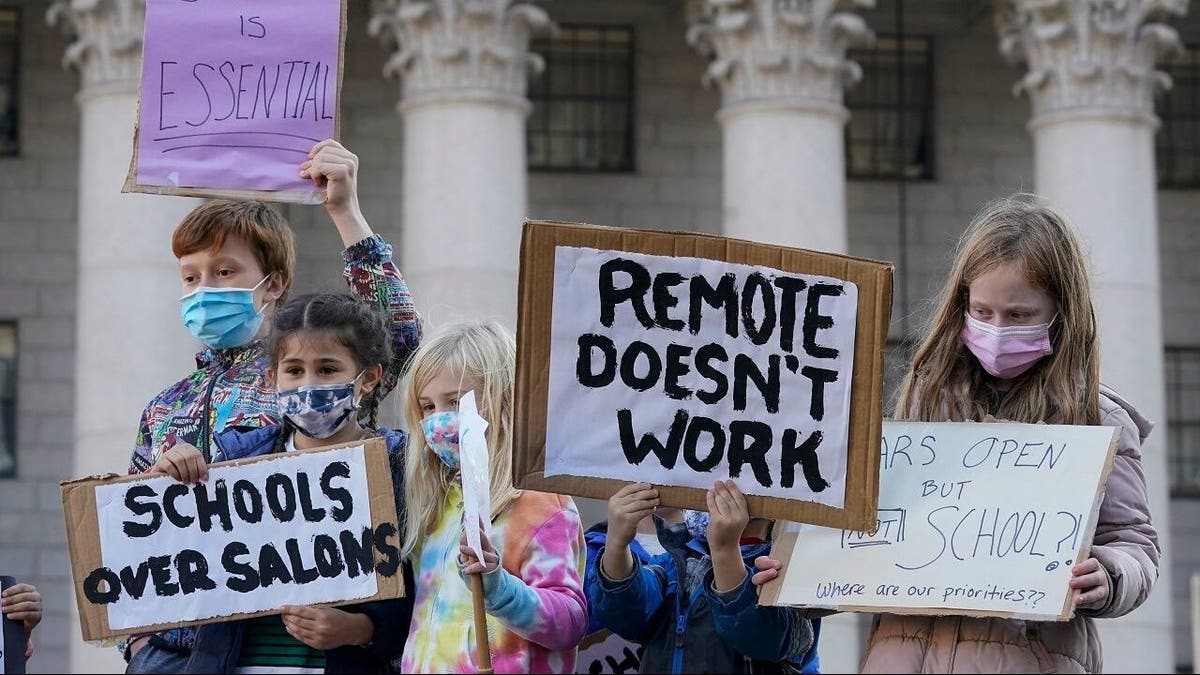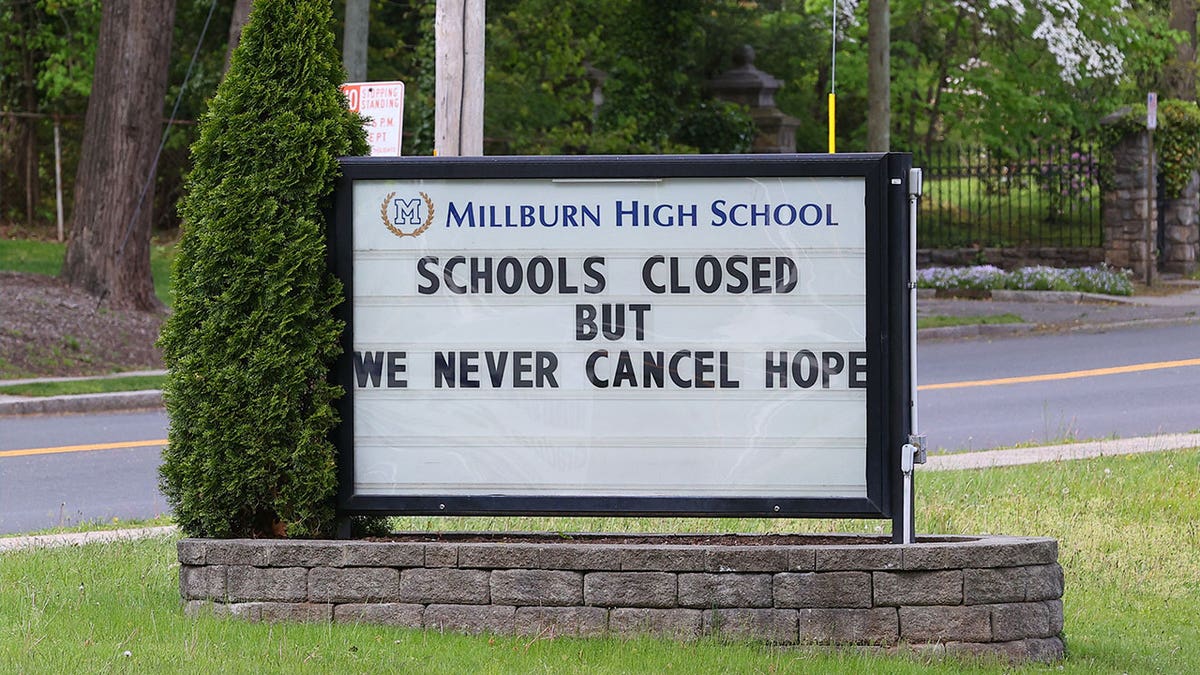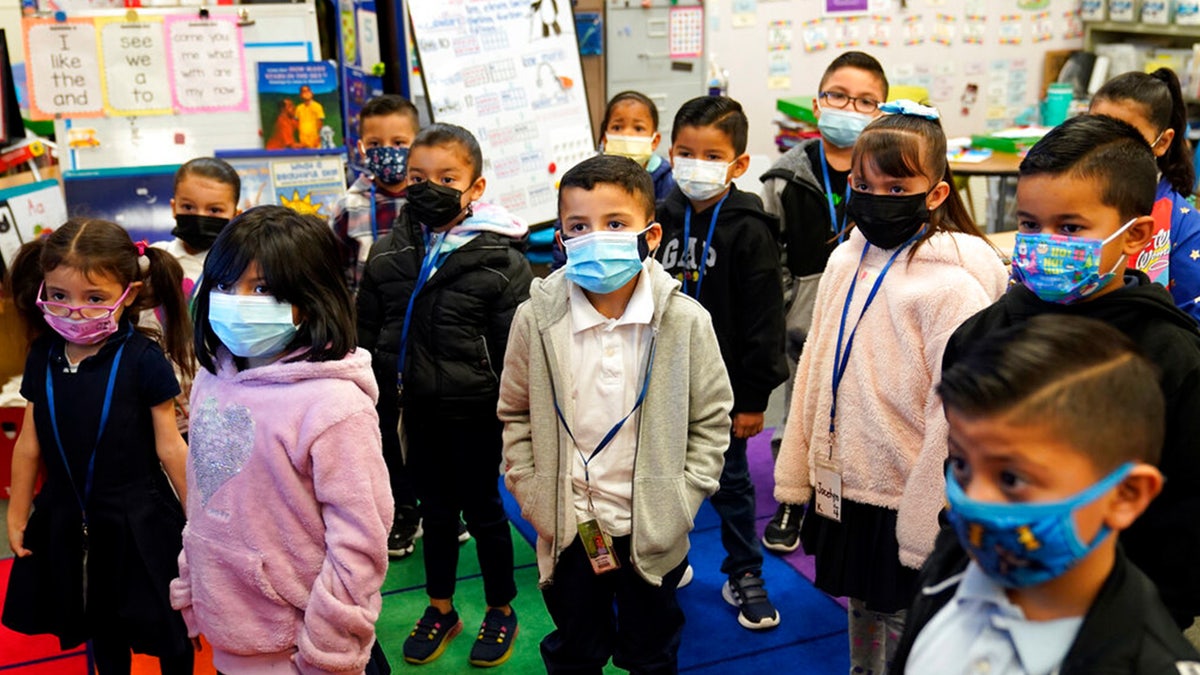Tucker Carlson: The coronavirus changed the balance of power in the world forever
Fox News host Tucker Carlson argues no one benefited more from the COVID pandemic than China on 'Tucker Carlson Tonight.'
Politicians and economists are reacting to new data showing that the damage school closures during the coronavirus pandemic inflicted a "global disaster" upon children was even worse than previously thought.
Data published by The Economist from the World Bank this week shows that the percentage of 10-year-olds in low and middle income countries who can’t read has risen 13% since the start of the pandemic, and the share of children in Latin America who can’t read rocketed from 50% to 80%.
With schools closed, children were prevented from mastering the basics, which causes them to earn less in the future. The McKinsey consulting firm estimates that school closures will cause the global GDP to be 0.9% lower, representing an annual loss of $1.6 trillion.
According to the World Bank, school closures cost children $21 trillion in earnings over their lifetimes which is far more than the $20 trillion estimation in 2020.

Students demonstrate during a rally to call on New York Mayor Bill de Blasio to keep schools open, Saturday, Nov. 14, 2020, in New York. (AP Photo/Mary Altaffer)
All across the world, students are underperforming in critical areas after finally being allowed to return to school after layoffs of up to 73 weeks in some areas. Unesco says that nearly 153 million missed more than half of all in-person schooling and more than 60 million missed three quarters.
In England, test scores show that school children are roughly two months behind where they should be in math, and American school children are testing eight to 19 weeks behind where they should be.
Schoolchildren in South Africa learned only about a quarter of what they should have during the 22-week school closure, data shows, and a study of 3,000 children in Mexico who missed 48 weeks of school shows that they learned little to nothing during the lockdown.
COVID-19 SCHOOL CLOSURES TURN PARENTS INTO SWING VOTERS
The report states that "globally schoolchildren may be eight months behind where they would normally be" andthat the "damage may be massive in many middle-income countries which are together home to about 75% of all school-age children."

A general view of the message board in front of Millburn High School during the coronavirus pandemic (Photo by Rich Graessle/Icon Sportswire via Getty Images)
Several reports and studies have concluded that school closures in the United States during the pandemic had a catastrophic effect on mental health in children after states across the country.
Additionally, a study published by the conservative think tank Just Facts concluded that coronavirus lockdowns will destroy seven times more years of life than lockdowns saved.
SCHOOL MENTAL HEALTH CRISIS: 70% SEE RISE IN STUDENTS SEEKING TREATMENT SINCE COVID-19 BEGAN: STUDY
Followingthe publication of The Economist report on school closures, critics of lockdowns slammed the decision to close schools, with many taking issue with the suggestion that the negative effects were unexpected.
"Fear and greed drove adults to punish children by depriving them of social interaction and learning opportunities," Republican Congressman Thomas Massie tweeted. "As the truth emerges, some will act as if they didn’t know it was child abuse while others will cling to the lie that it was necessary. Never let them do this again."
"I’ll refrain from saying ‘I told you so’ if just ONE of the many virtue-signaling elites who advocated for endless shutdowns admits they were wrong," Heritage Foundation president Kevin Roberts tweeted.

Kindergarteners wear masks while listening to their teacher amid the COVID-19 pandemic at Washington Elementary School on Jan. 12, 2022, in Lynwood, California. (AP Photo/Marcio Jose Sanchez, File)
CLICK HERE TO GET THE FOX NEWS APP
"Maybe not a huge surprise to everyone…but saying so in 2020 was ‘hard-line,'" Utah's Republican Gov. Spencer Cox tweeted. "Fortunately Utah was one of the first states to get kids back in school and the legislature has given us additional resources while our schools/teachers are working overtime to help at-risk students."
"Pretty sure millions and millions of us fully expected it to go this way," Republican Congresswoman Lauren Boebert tweeted.












































